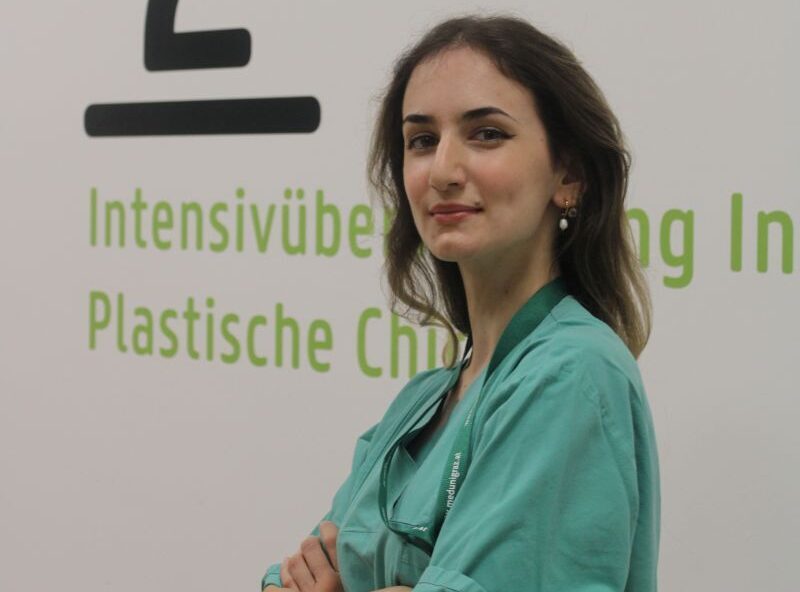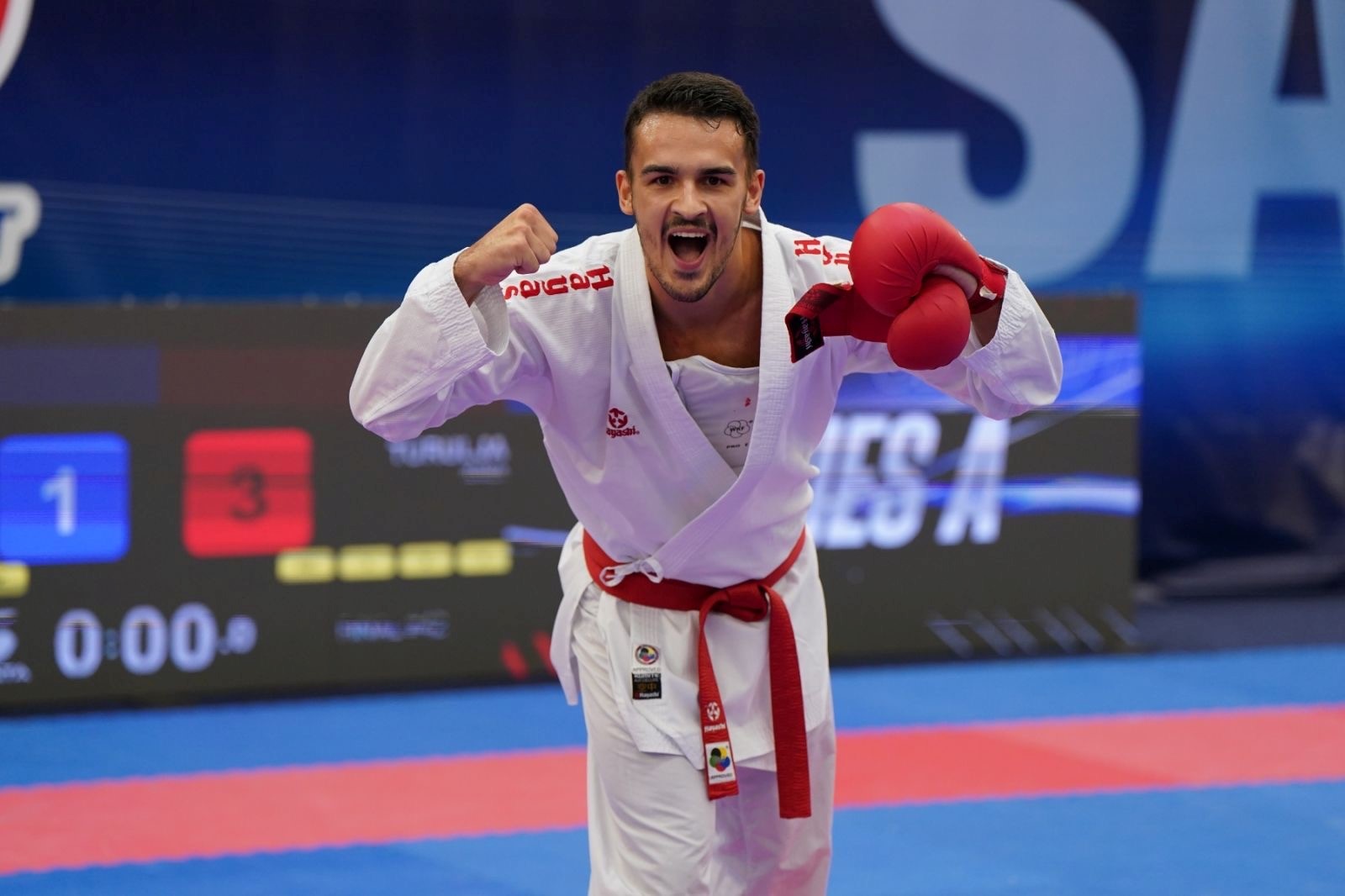Ilhana Tinjak is a scholarship recipient of the Hastor Foundation and a participant in the current phase of the mentorship program “The First Step into the Business World.”
Ilhana is a doctor of medicine. She graduated from the Faculty of Medicine, University of Sarajevo, three months ago, and is already taking part in the mentorship program under the guidance of the esteemed prim. mr. sci. Adi Mulabdić, M.D., specialist in general surgery and subspecialist in abdominal surgery at ASA Hospital. Driven by a desire to advance her knowledge and contribute to the development of medical practice, Ilhana plans to continue her career with a specialization in surgery.
1. How has the mentorship program “The First Step into the Business World” contributed to your professional confidence and transition from student to doctor?
I’m currently in the middle of that “transition”: I graduated on July 15th, and I don’t yet have my first job. The mentorship program came at the perfect moment, right at the threshold of the professional world. Of course, we had practice and clinical exercises during our studies, but that’s experienced differently and serves another purpose. The Hastor Foundation’s mentorship program gave me the opportunity to catch a glimpse of the life I want to live in the future. Surgery is my field of interest, and as a doctor of medicine who follows a surgical subspecialist through an entire workday, I now get to partially live the life I aspire to. That’s priceless. This project confirmed what I already suspected—which branch of medicine I want to pursue—and, having before me such an exceptional expert in his field, what kind of doctor and surgeon I want to become.
2. What do you see as the greatest value of working with a mentor like prim. Dr. Adi Mulabdić, and how does his experience guide your professional growth?
For projects like this to succeed, it’s essential to choose the right mentors, not only professionals in their fields, but people capable of passing on their knowledge and experience. Dr. Adi is an extraordinary surgeon; even with my limited experience, I can recognize that. But what truly makes him one of the best in this profession is his way of connecting with people. You can see it at every step: in his interactions with colleagues, staff, and above all, patients. Of course, I’ve learned (and continue to learn) many practical surgical skills from him—there’s a long list of techniques one must master, and I’m immensely grateful for that—but above all, Dr. Adi teaches me, by his own example, how to be a good, empathetic and dedicated person and doctor. We must never forget that medicine is a calling that serves people when they are at their most vulnerable. Having someone who inspires you to become better—as both a doctor and a human being—is what I value most in this experience.

3. Surgery requires precision, composure and vast knowledge. Which qualities and skills should young doctors develop most to succeed in this field?
Practical skills are, of course, the foundation of surgical work and practice. That includes everything you might think of: surgical suturing, handling tissues and organs, steps of operative procedures, and much more. These are things that, as I understand, are gained and perfected through experience, just like any motor skill. Young people can develop them through hospital volunteer work, independent practice and study, but primarily through formal training and specialization. On the other hand, the essential personal qualities for this field are perseverance, endurance, readiness for sacrifice, dedication and, above all, love for the profession and for surgery itself. You really have to love what you do. That, I believe, is the foundation of success.
4. Which moment from the mentorship program so far has been the most meaningful or instructive for your future path?
It’s only October, so I’m sure there will be more moments like that. So far, one that stands out was with one of Dr. Adi’s patients—an elderly woman, nearly 80, who was scheduled for two major surgeries. The day before, I visited her in the ward with Dr. Adi. She was very scared. Dr. Adi tried to comfort her, to ease her fear and her smile showed that, at least partly, he succeeded. That was a very significant moment because it reminded me of the essence, the real purpose of this work and profession. The next day, the operation went well, and I had the chance to assist for the first time in a laparoscopic procedure. I’ll probably remember that moment for a long time, though there have already been many others like it.




